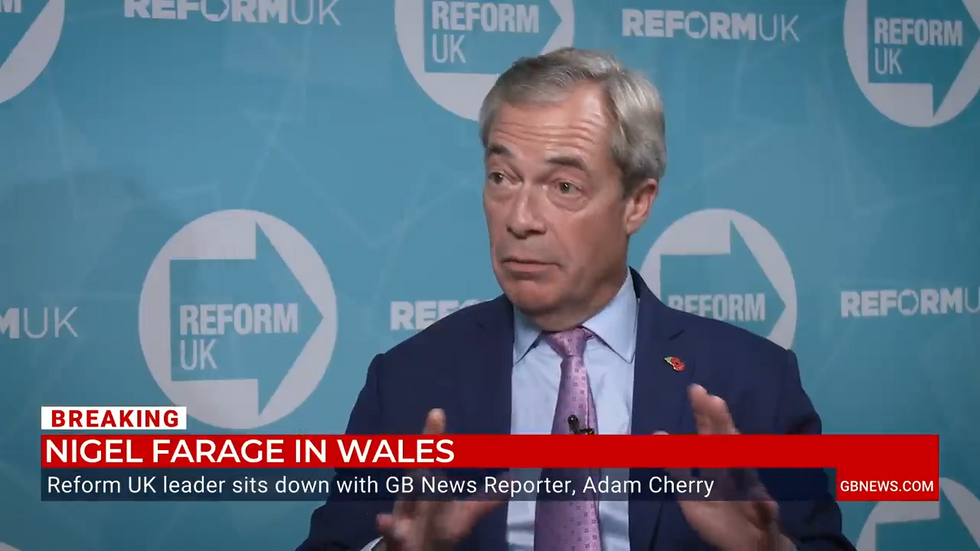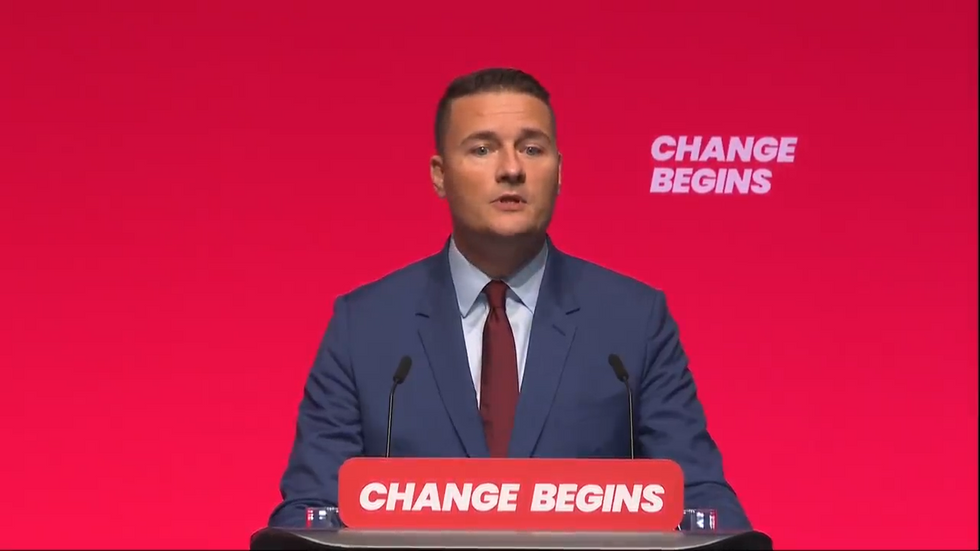Nigel Farage will not vote for the assisted dying bill, he has confirmed on GB News.
Speaking to Adam Cherry, the Reform UK chief said it would take “a lot of convincing” for him to change his mind.
MPs are set to debate and vote on legalising assisted dying in the Commons on November 29.
The vote comes after Kim Leadbeater, a backbench Labour MP, won a ballot to introduce a Private Member’s Bill on the issue.

Nigel Farage says the way assisted dying is carried out in Canada is enough to put him off
GB NEWS
But seeing how assisted dying is carried out in countries like Canada is enough to dissuade Nigel from backing the proposal.
“I would need a lot of convincing to support it”, he told GB News.
LATEST DEVELOPMENTS
- Jenrick tells Britons to ‘WAKE UP’ as he issues warning over mass migration in wake of Amsterdam attacks
- Gun-wielding Iranian dubbed ‘the best smuggler’ jailed after helping scores of migrants cross Channel
- David Lammy issues WARNING to Donald Trump amid apology row over historic comments
“I look at the way assisted dying is taking place in Canada and frankly, it gives me the shivers.
“I know there are people that die in the most appalling circumstances. As an MEP, I was lobbied on that issue more than any other during my 20 years there, so I completely understand why people want this to be law.

Nigel Farage spoke to Adam Cherry on GB News
GB NEWS
“But I need a lot of convincing that it won’t be abused. Unless that happens, I will vote against it.”
Sir Keir Starmer has promised Labour MPs they will be able to vote in line with their consciences.
Senior party figures like Health Secretary Wes Streeting have confirmed they would vote against it.
Private Member’s Bills are subject to the same stages as any other legislation, but less time is allocated to them in Parliament.

Wes Streeting will also be voting against the legislation
GB News
This means they are often discussed in significantly less detail before a vote.
Supporters of assisted dying say terminally ill people would be given the choice to end their lives and prevent severe pain.
Opponents warn it could turn into a “slippery slope” towards coercion.